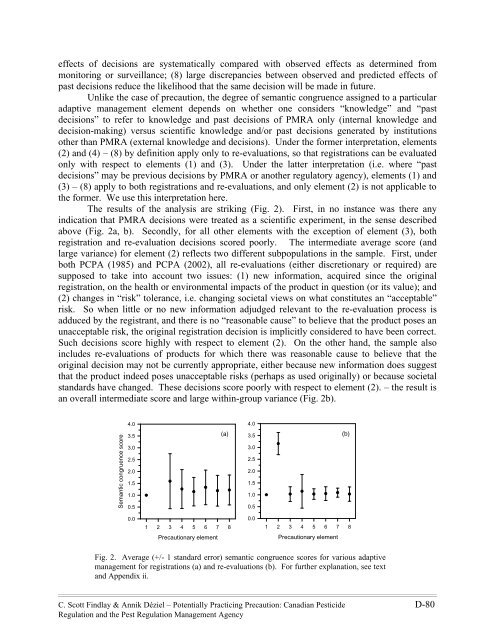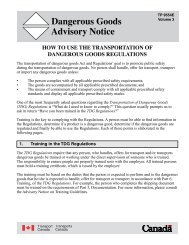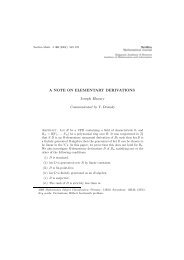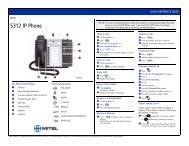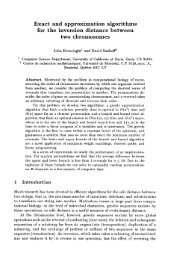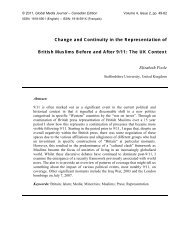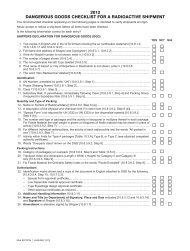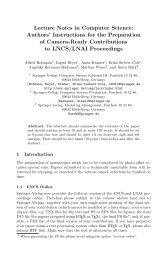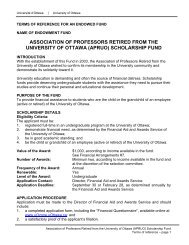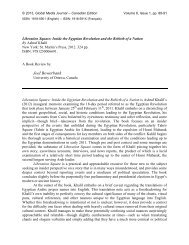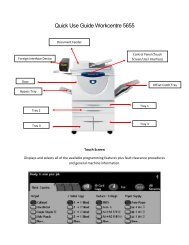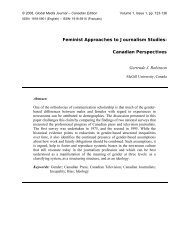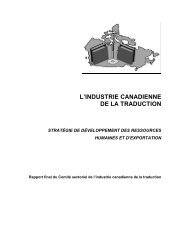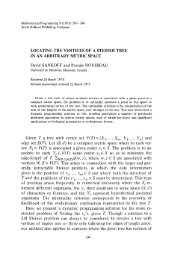PRACTICING PRECAUTION and ADAPTIVE MANAGEMENT ...
PRACTICING PRECAUTION and ADAPTIVE MANAGEMENT ...
PRACTICING PRECAUTION and ADAPTIVE MANAGEMENT ...
- No tags were found...
You also want an ePaper? Increase the reach of your titles
YUMPU automatically turns print PDFs into web optimized ePapers that Google loves.
effects of decisions are systematically compared with observed effects as determined frommonitoring or surveillance; (8) large discrepancies between observed <strong>and</strong> predicted effects ofpast decisions reduce the likelihood that the same decision will be made in future.Unlike the case of precaution, the degree of semantic congruence assigned to a particularadaptive management element depends on whether one considers “knowledge” <strong>and</strong> “pastdecisions” to refer to knowledge <strong>and</strong> past decisions of PMRA only (internal knowledge <strong>and</strong>decision-making) versus scientific knowledge <strong>and</strong>/or past decisions generated by institutionsother than PMRA (external knowledge <strong>and</strong> decisions). Under the former interpretation, elements(2) <strong>and</strong> (4) – (8) by definition apply only to re-evaluations, so that registrations can be evaluatedonly with respect to elements (1) <strong>and</strong> (3). Under the latter interpretation (i.e. where “pastdecisions” may be previous decisions by PMRA or another regulatory agency), elements (1) <strong>and</strong>(3) – (8) apply to both registrations <strong>and</strong> re-evaluations, <strong>and</strong> only element (2) is not applicable tothe former. We use this interpretation here.The results of the analysis are striking (Fig. 2). First, in no instance was there anyindication that PMRA decisions were treated as a scientific experiment, in the sense describedabove (Fig. 2a, b). Secondly, for all other elements with the exception of element (3), bothregistration <strong>and</strong> re-evaluation decisions scored poorly. The intermediate average score (<strong>and</strong>large variance) for element (2) reflects two different subpopulations in the sample. First, underboth PCPA (1985) <strong>and</strong> PCPA (2002), all re-evaluations (either discretionary or required) aresupposed to take into account two issues: (1) new information, acquired since the originalregistration, on the health or environmental impacts of the product in question (or its value); <strong>and</strong>(2) changes in “risk” tolerance, i.e. changing societal views on what constitutes an “acceptable”risk. So when little or no new information adjudged relevant to the re-evaluation process isadduced by the registrant, <strong>and</strong> there is no “reasonable cause” to believe that the product poses anunacceptable risk, the original registration decision is implicitly considered to have been correct.Such decisions score highly with respect to element (2). On the other h<strong>and</strong>, the sample alsoincludes re-evaluations of products for which there was reasonable cause to believe that theoriginal decision may not be currently appropriate, either because new information does suggestthat the product indeed poses unacceptable risks (perhaps as used originally) or because societalst<strong>and</strong>ards have changed. These decisions score poorly with respect to element (2). – the result isan overall intermediate score <strong>and</strong> large within-group variance (Fig. 2b).4.04.0Semantic congruence score3.53.02.52.01.51.00.5(a)3.53.02.52.01.51.00.5(b)0.01 2 3 4 5 6 7 80.01 2 3 4 5 6 7 8Precautionary elementPrecautionary elementFig. 2. Average (+/- 1 st<strong>and</strong>ard error) semantic congruence scores for various adaptivemanagement for registrations (a) <strong>and</strong> re-evaluations (b). For further explanation, see text<strong>and</strong> Appendix ii.C. Scott Findlay & Annik Déziel – Potentially Practicing Precaution: Canadian Pesticide D-80Regulation <strong>and</strong> the Pest Regulation Management Agency


